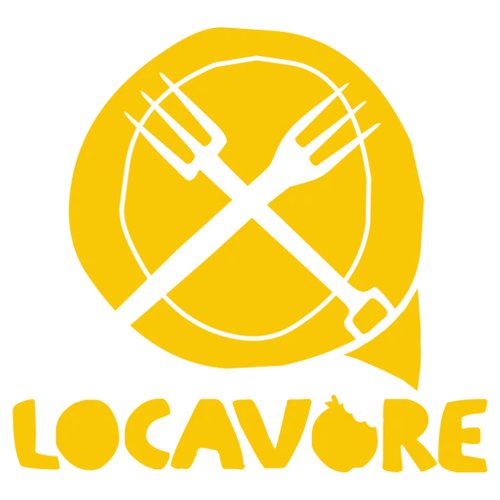Glasgow and its appetite for green community business
Posted on 21 Dec 2021 Categories: Blog, Climate crisis, Coronavirus, Local initiatives
by The Alternative UK
While the COP focus is on Glasgow, and the Scottish central belt, we thought we’d share some vibrant local Glasgow initiatives and community business that address zero-waste shopping, and community energy generation, directly. That’s the rapidly expanding Locavore network, and the Glasgow Community Energy cooperative.
LOCAVORE

We heard news of these thoughtful, innovative food providers extending their reach into Edinburgh, from their strong Glasgow base (taking over an old Maplin’s store in Dalry, a district just outside the Scottish capital). But that’s pulled us into their overall success story, with three outlets already in the Dear Green Place.
Their shops make strong links with local farmers, and are also sourced by their own three-site farm. They also do a thriving business in vegetable and fruit-box deliveries, run a training scheme to turn customers into food-makers called Grow the Growers. Their philosophy and ambition is clear:
Everyone eats food, and the food we choose to eat has far reaching impacts which shape our landscapes, streetscapes and local economic situations. What we eat impacts our health, but also everything else in the world with issues as wide ranging as deforestation, climate change, animal welfare, public health, exploitation of the global poor and workers rights. It’s fair to say we have a lot more than food on our plates.
We think at the root of all these big overwhelming global and local problems is the basic model of the big corporations who run the food system. They exist to extract as much money as possible from customers for the benefit of their shareholders. With supermarket chains in the UK holding 97% the grocery market it’s not much of a surprise that things are in such a dire state.

GLASGOW COMMUNITY ENERGY
From their About Us:
We are Glasgow’s new community-owned renewable energy co-operative – a project developed by local people on a largely voluntary basis over the last six years.
In 2020, during the coronavirus lockdown, we successfully installed solar panels on the roofs of two schools in Glasgow:
-
Ashton Secondary School, Easterhouse, G33 3SW
-
Glendale Primary School / Bunsgoil Ghàidhlig Ghleann Dail, Pollokshields, G41 1NX
Tackling the climate emergency
These two installations alone will save nearly 50 tonnes of carbon dioxide per year – helping our city work towards its target to be carbon neutral by 2030.
Re-investing in our communities
Selling the electricity they produce will raise several thousand pounds each year, which can be reinvested into local community projects through our Community Benefit Fund.
But we have even bigger plans for the future – expanding to further sites across the city and exploring other renewable energy technologies over the coming years.
Our first Community Share Offer ran from 18 May – 18 June 2021, enabling us to pay back the loan used to part-finance our first two installations, and to bring in new members to help us develop our future plans.
We now have 181 members (154 individuals and 27 community organisations) across Glasgow and beyond.
More here. And see this report from the Times. An extract:
Ellie Harrison is trying to find greener ways to power Glasgow while empowering its residents. “Our people are our resource in the fight against climate change,” she says.
The 42-year-old is the chairwoman of Glasgow Community Energy (GCE), a co-operative in Pollokshields with 150 members who install solar panels across deprived areas of the city. “It’s about reclaiming power for the community,” she says, smiling at the double meaning.
An artist and community activist, Harrison began developing the co-op six years ago, when it was just a dream shared with friends. “We spent years trying to get it off the ground,” she says.
Last year the group used the government’s Feed-In Tariff, which pays producers to generate green energy, to install solar panels across the roofs of schools in Easterhouse and Pollokshields, where many of the co-op’s members live. “It also provides an educational apparatus and workshops for the schools,” Harrison says, standing outside Glendale primary school, in Pollokshields, which GCE completed panelling in October 2020.
As a co-operative, GCE allows its members, who each pay as little as £50 to join, a vote about where to work next and where the low-carbon power will go. “It’s something practical that people in the community can get involved with,” Harrison says.
As well as managing the solar panels democratically, the co-op allows members to decide where to direct funds generated from selling surplus energy through a community benefit fund. “Reinvesting that in the local community is central to the co-operative,” she says, “to help feed the benefits back into the area.”
The co-op believes that its business structure challenges existing energy companies and could be a vital tool in securing a green transition for the Scottish economy. “The energy sector is a bit of a shambles at the moment,” Harrison says, “and in the absence of a more strategic vision for energy, we will have to do our bit.”
Harrison is hoping to see GCE expand into different renewable energy sources and join with other groups. She insists that any green transition needs to be led by ordinary Glaswegians. “We need to devolve more power to communities”, she says.
This was originally posted on The Alternative UK blog on 6th November 2021.
Want to keep up-to-date with more articles like this? Sign up to our newsletter.
Posted on 21 Dec 2021 Categories: Blog, Climate crisis, Coronavirus, Local initiatives

